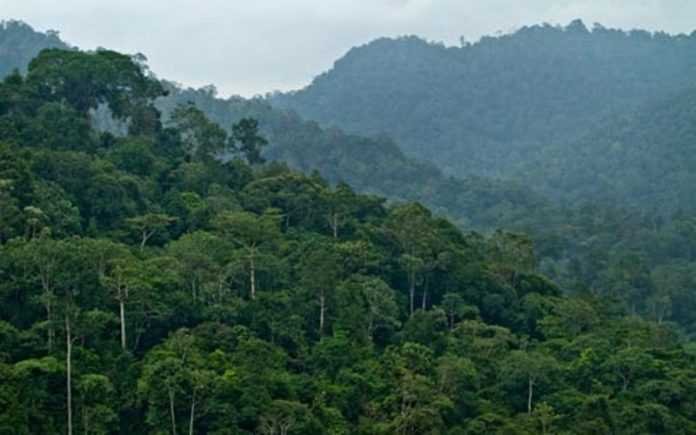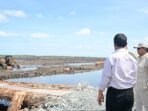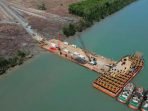Banjarbaru – A study conducted by the Indonesian Forum for the Environment (Walhi) of South Kalimantan on the spatial pattern of Regional Regulation Number 9 of 2015 concerning the Provincial Spatial Planning (RTRWP) of South Kalimantan for 2015-2035 found that the Government still shows that they are not serious enough to use a means of controlling space utilization. This is indicated by the fact that there are still concession permits granted during 2015 – 2020 that are in protected areas and cultivation areas.
From the results of overlaying mineral and coal concession permits on spatial patterns in South Kalimantan during the 2015 to 2020 period, this shows that there are around 36,450 hectares in protected areas and an area of 233,220 hectares in cultivation areas and there is an open area of mineral and coal mining outside the concession boundaries given.
In addition, during the 2015 – 2020 period the issuance of permits for mineral and coal by the central and local governments that did not match the spatial pattern in the attachment to Regional Regulation no. 9 of 2015.
So, the momentum for revising the RTRWP of South Kalimantan has started since early 2020, at this time it should be able to become an effort to take corrective action and enforce law on land use for extractive industries in South Kalimantan which is not in accordance with existing spatial patterns.
Spatial planning should be an effort to prevent and reduce the impact of loss and damage to ecological disasters. The floods that hit South Kalimantan in early 2021 could be interpreted as a demand that the Government be more serious about future spatial planning in the context of revising the RTRWP in response to the objectives of spatial planning.
In addition, Walhi’s lawsuit against the extractive industry which has won at the Supreme Court level reinforces the fact that the spatial planning that occurs in South Kalimantan tends to be disorganized as seen from the issuance of natural resource permit concessions that are still contrary to the public’s desire for the availability of fair spatial products and also guarantee good living environment.
The Executive Director of Walhi South Kalimantan, Kisworo Dwi Cahyono, said that after the WALHI lawsuit won in the Supreme Court, the government must immediately clean up and be firm about mining mafia crimes. “The government must immediately execute the Supreme Court Judicial Review decision which won WALHI in the lawsuit, the Production Operation Decree must be revoked immediately and even re-evaluate the PKP2B. Don’t let the public judge that the Government is currently acting against the law in this country, “he said.
In addition to the complexity of spatial planning issues, there is also a threat from Law number 11 of 2020 concerning Job’s Law using the Omnibus Law method. This law is said to have breached environmental management regulations in Indonesia. If it is compared with Law number 4 of 2020 concerning Mineral and Coal Mining, it is perfect that the spatial planning and the environment are destroyed in a structural way.
South Kalimantan Participatory Mapping Service Node Coordinator, Gusti Nordin Iman, said that the passing of the Omnibus Law will give extractive corporations the opportunity to control as much space as possible so that the government seems to be negligent in improving fair spatial governance for its people. On the other hand, geospatial information data made by the community in a participatory manner to show the existence of management for their living space has never been taken into consideration by the Government.
“Weakness in law enforcement and control by the Government against violations or irregularities in the mining, forestry and plantation sectors is also a contributing factor to accelerating the rate of environmental damage in South Kalimantan,” he said.
writer: Anang










